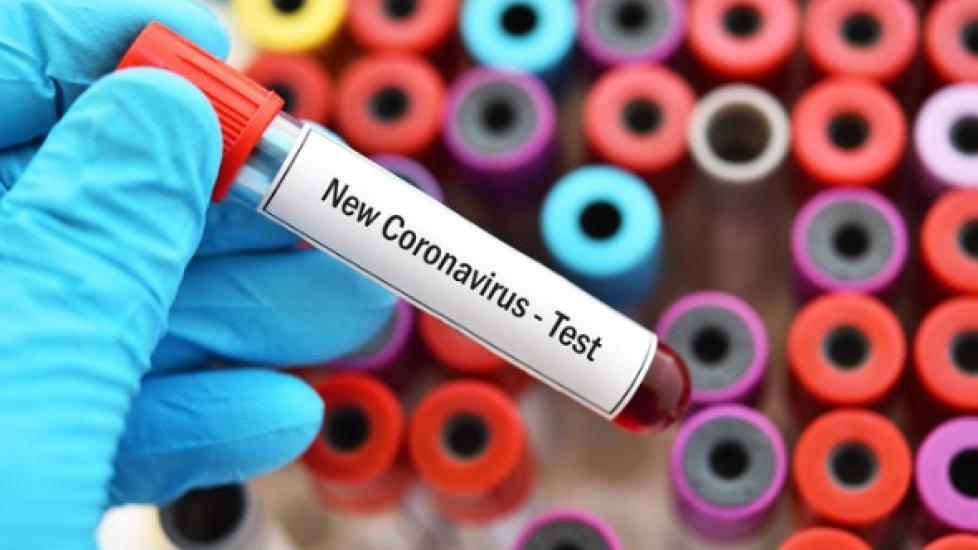Can Pets Spread Coronavirus (COVID-19) to People?
By Dr. Jennifer Coates, DVM
Updated by Dr. Katy Nelson, DVM, on April 24, 2020
In this article:
- There's no evidence that pets are playing a role in spreading COVID-19.
- There are a few reports of pets being infected with the virus that causes COVID-19 after being in contact with people who were positive for COVID-19.
- “Canine” and “feline” coronavirus are NOT the same as COVID-19.
- People cannot catch “canine” and “feline” coronavirus.
- Monitor trusted news outlets for the latest updates (Centers for Disease Control (CDC), the World Health Organization (WHO), and the World Organisation for Animal Health).
Jump to Section:
As with any major health crisis, there’s a lot of misinformation out there about dogs and cats and the new coronavirus (officially called COVID-19; previously called 2019-nCoV).
There have been reports of a few pets becoming infected with the virus after being in close proximity to people with COVID-19. So we now know that pets can get the virus, but can they give it to us?
Let’s look at what we know and, just as importantly, what we don’t.
Can Humans Get Coronavirus (COVID-19) From Cats and Dogs?
According to the Centers for Disease Control and Prevention (CDC):
"At this time, there is no evidence that animals play a significant role in spreading the virus that causes COVID-19. Based on the limited information available to date, the risk of animals spreading COVID-19 to people is considered to be low."
The World Organisation for Animal Health adds the following:
"The current spread of COVID-19 is a result of human to human transmission. To date, there is no evidence that companion animals play a significant role in spreading the disease. Therefore, there is no justification in taking measures against companion animals which may compromise their welfare."
Recommended Pet Products
- Nutramax Proviable Probiotics & Prebiotics Digestive Health Supplement for Dogs & Cats, 160 count$89.98Chewy Price
- Fera Pets USDA Organic Pumpkin Plus Fiber Support for Dogs & Cats, 90 servings$34.95Chewy Price
- All Four Paws Comfy Cone E-Collar for Dogs & Cats, Black, Small$20.24Chewy Price
- Virbac Epi-Otic Advanced Ear Cleaner for Dogs & Cats, 4-fl oz bottle$13.19Chewy Price
Can Animals Carry the Virus on Their Skin or Fur?
While certain bacteria and fungi are known to be present on the skin and hair of animals, there is no evidence that viruses, including the virus that causes COVID-19, can be spread by petting or touching your pet’s fur.
However, since animals can carry other germs that can make people sick, it’s still best practice to wash your hands before and after petting, snuggling, or playing with your pet.
Is It Safe to Adopt Shelter Pets Now?
The short answer is yes. There is no evidence at this time that pets can transmit COVID-19, and that includes shelter pets.
It is actually a wonderful time to adopt or foster a pet. Many shelters have shorter hours and reduced staff, so they're desperately seeking fosters and adopters to move pets out of the shelters right now.
Plus, you have the added bonus of being home with your foster or new pet, so you have plenty of time to help them decompress and assimilate into your household, and to do some extra training!
What’s the Difference Between COVID-19 and “Canine” and “Feline” Coronavirus?
While dogs and cats appear to be unaffected by SARS-CoV-2, they do have their own coronaviruses to deal with. Neither canine coronavirus nor feline coronavirus can infect people.
Dogs infected with canine enteric coronavirus (CECoV) typically develop diarrhea. Young puppies are at highest risk, but dogs of all ages usually recover uneventfully on their own or with symptomatic care. There is another type of coronavirus, canine respiratory coronavirus (CRCoV), that is associated with some cases of kennel cough in dogs.
Feline coronavirus (FCoV) also tends to cause mild, self-limiting diarrhea, especially in kittens. In rare cases, however, the virus can go dormant in the cat’s body and later mutate into a new form that causes feline infectious peritonitis (FIP), a disease that is almost always fatal.
Where Did COVID-19 Originate?
Scientists don’t definitively know the source of COVID-19, but research is pointing towards bats as a likely source with an unidentified intermediary host also probably involved.
Most viruses can only infect a limited number of species, which is determined in large part by the virus’s ability to recognize receptors on host cells. However, as a group, coronaviruses seem predisposed to mutate and become able to infect new species.
For example, the MERS (Middle East Respiratory Syndrome) coronavirus outbreak was associated with dromedary camels and the 2002-2003 SARS (Severe Acute Respiratory Syndrome) coronavirus appears to have come from civet cats, with both viruses possibly originally arising in bats.
What You Can Do Now
It seems overwhelming when you’re faced with an outbreak such as COVID-19, and as a pet parent, you’re worried not only about yourself but your pets as well. Here are some things you can do right now.
Stay Informed
It is important to recognize that viruses are constantly evolving. The best thing you can do at this point is to stay informed by monitoring news from trusted sources. Check for current information on the CDC’s FAQs on COVID-19 and Animals.
Help Prevent the Spread of COVID-19
As always, good hygiene is one of the best defenses against infectious agents of all sorts. Wash your hands with soap and water frequently, especially after being around sick people or handling animals or animal waste.
The CDC states that “it’s always a good idea to wash your hands after being around animals.”
If you or your pet is ill, seek appropriate medical or veterinary attention and follow a doctor’s recommendations when it comes to vaccination and other forms of preventative care.
Featured Image: iStock.com/jarun011
RELATED ARTICLES
How to Plan for Your Pet's Care if You Get (COVID-19)
COVID-19 and Pets: Should I Go to the Vet or Wait? What’s the Protocol?




